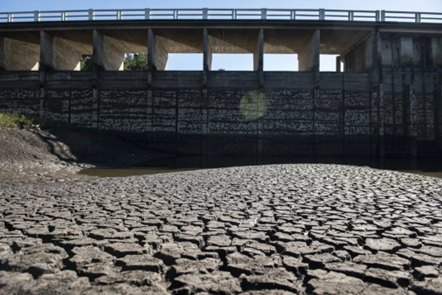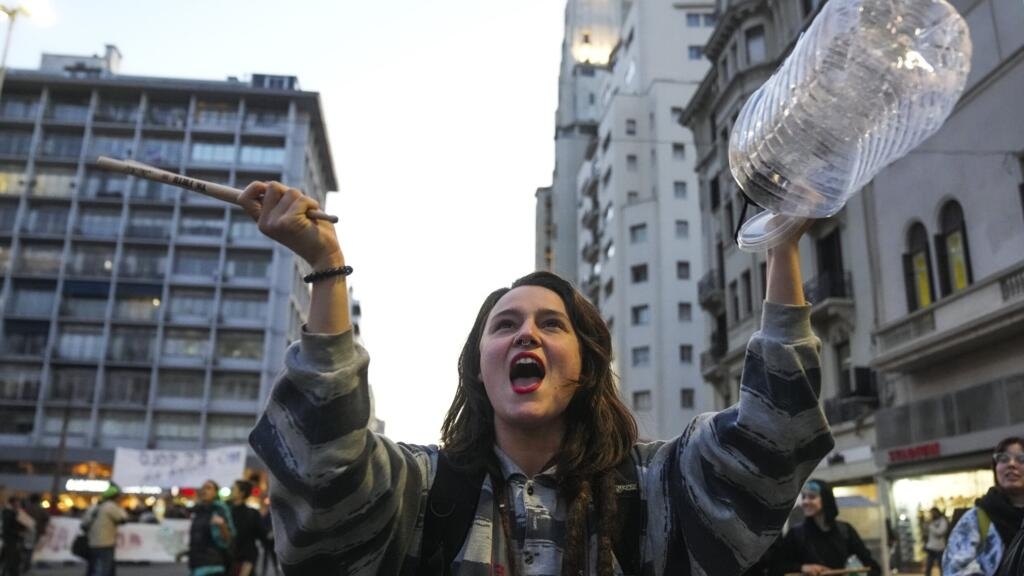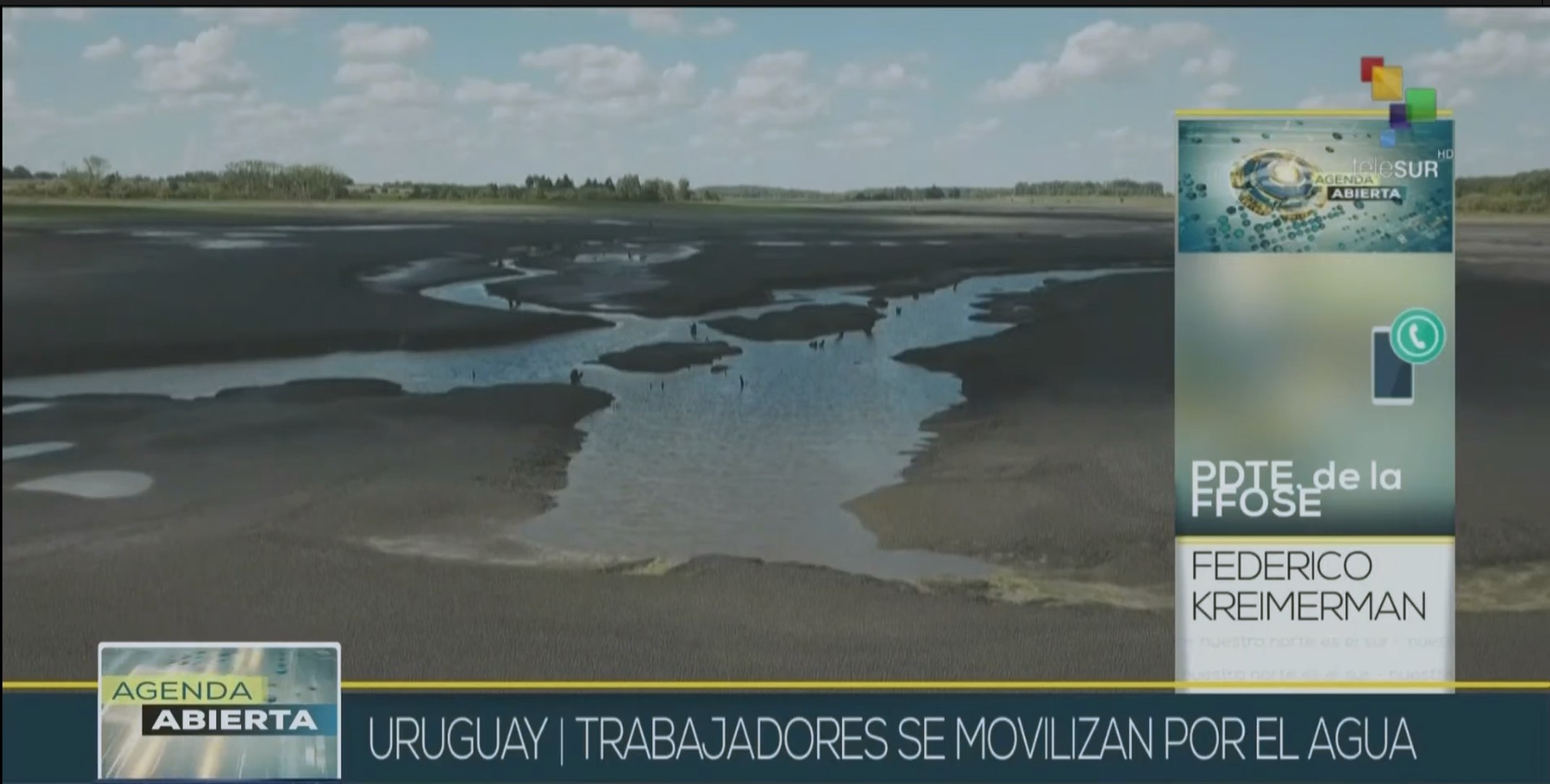
The serious water crisis facing Uruguay has generated an alarming message in the streets. During one protest, a young protester held a sign with the slogan “Attention, do not drink water!” and a drawing of a glass covered by the red prohibition sign.
This message reflects the fears of the Uruguayan population in the face of the worst drought in more than 70 years and their concern about running out of drinking water or having only low-quality water for human consumption, due to climate change and lack of rainfall.
The prolonged lack of rainfall and the drastic decrease in reserves have forced the Uruguayan authorities to mix the water of the Rio de la Plata estuary with the little water stored. However, this resulting mixture has high levels of sodium and chlorides, which worries citizens and has led to protests demanding the right to water.
In addition, to ensure supply, the authorities have temporarily increased the permitted limit of sodium according to local regulations. However, this situation has generated concern among protesters, such as Jorge Damian Muslera, who expressed that they feel obliged to drink dirty water. The consumption of water with these characteristics is not recommended for vulnerable groups such as pregnant women and people with chronic kidney diseases, heart failure, cirrhosis or high blood pressure. Faced with this situation, the population has increased the consumption of bottled water.

Many attribute the water shortage also to the poor state of infrastructure, which causes the loss of drinking water through damaged pipes or leaks. The water crisis mainly affects the south of the country, where a large part of the population resides, especially in the capital Montevideo and its metropolitan area, home to 1.8 million of Uruguay’s 3.5 million people.
The Severino Pass dam, the main supplier of water to the capital, has reached critical reserve levels. According to the latest report of the State Sanitary Works (OSE), the dam has only 10% of its total capacity. Although the rains of 26 May allowed a slight extension of the reserves, the situation remains very critical.
The water crisis has generated political tensions between the government of President Luis Lacalle Pou and the opposition center-left Broad Front (FA), with mutual accusations over water management. The FA maintains that the government ignored a plan presented by former President Tabaré Vázquez to Lacalle Pou, while the current administration is looking for private companies to build a water treatment plant to supply the metropolitan area with water from the Río de la Plata.
The government has announced measures to address the crisis, including the acquisition of a desalination plant, the acceleration of repairs to pipe networks and the opening of a plant for the production of drinking water sachets for the most vulnerable population. The former Minister of Environment, Adrián Peña, has pointed out that previous administrations did not fully understand the dimension of the water problem and that, although investments have been made, they have not been enough.

